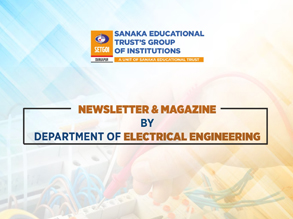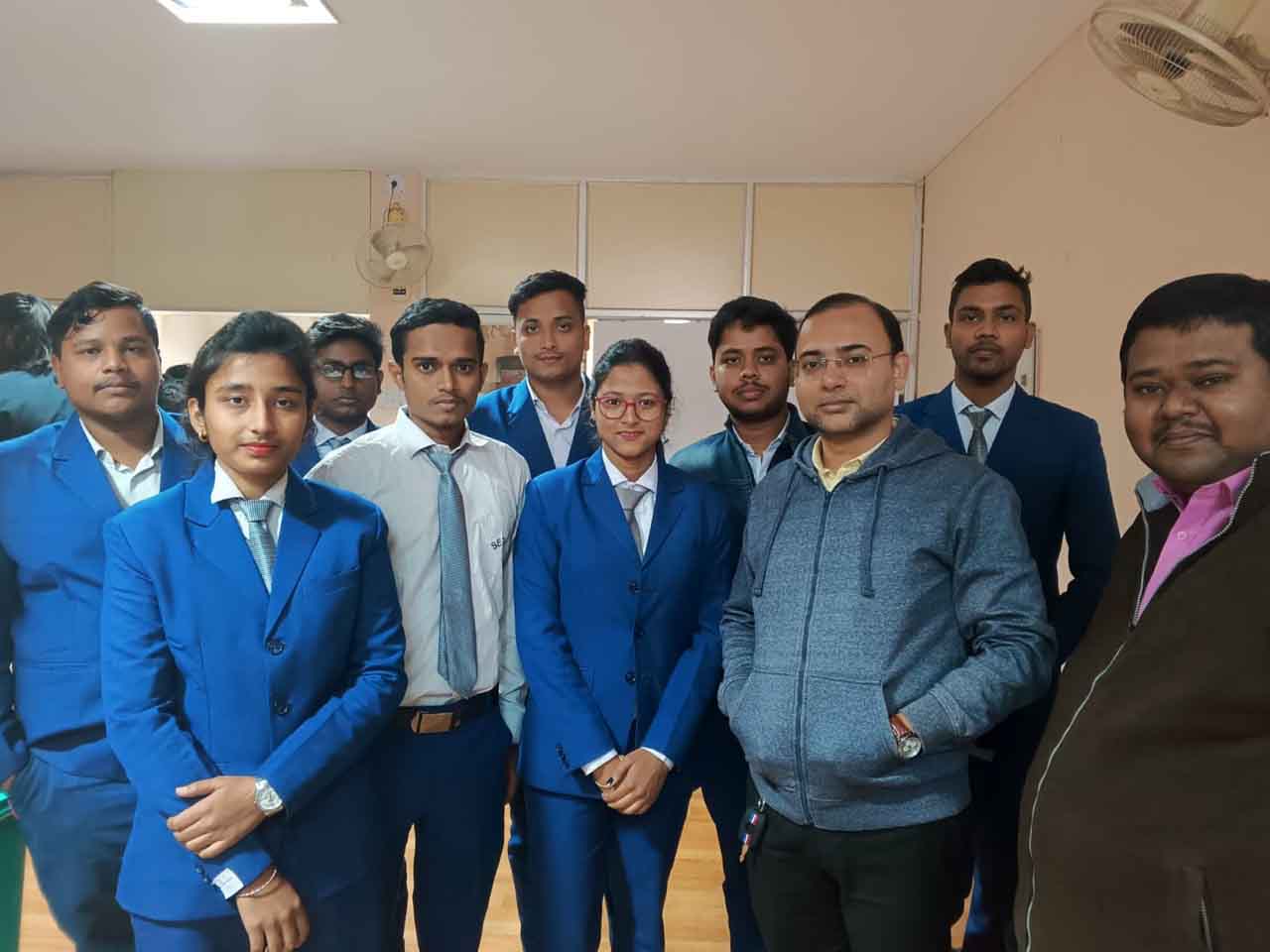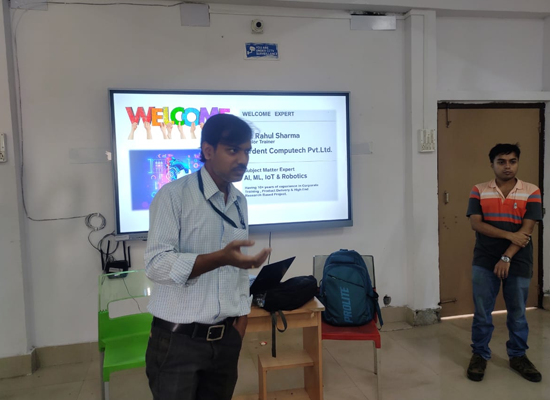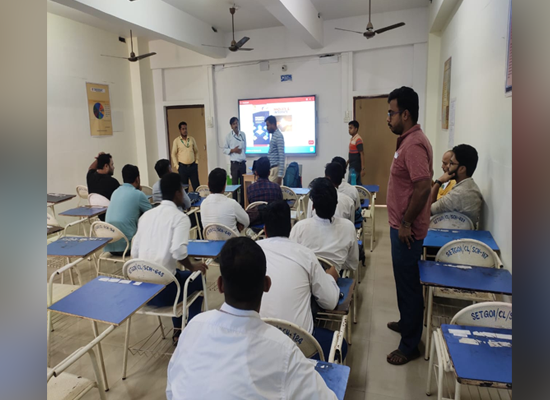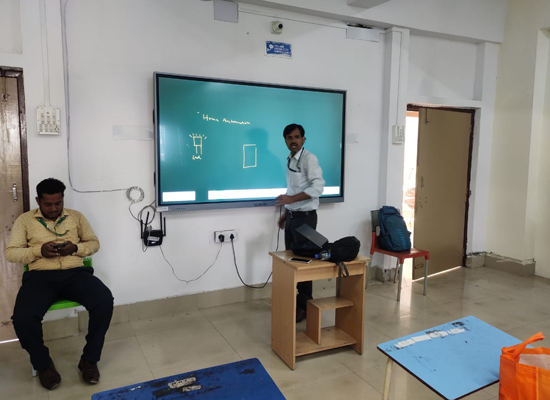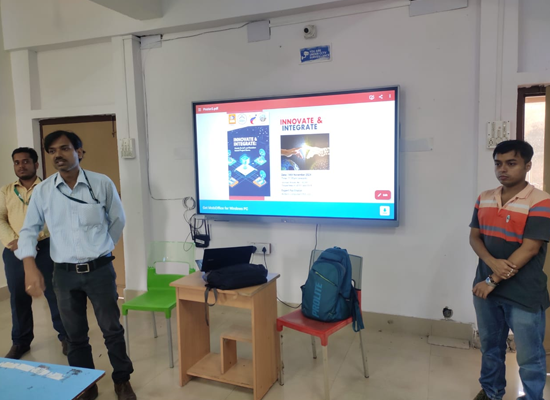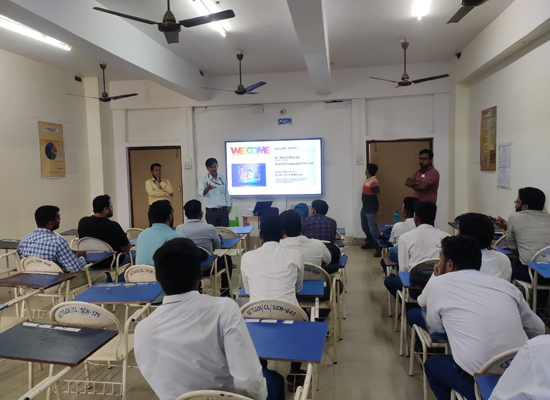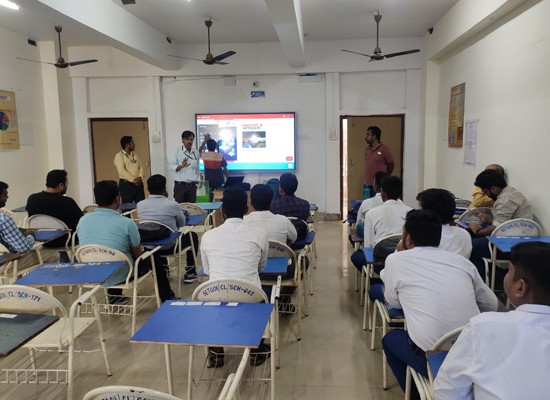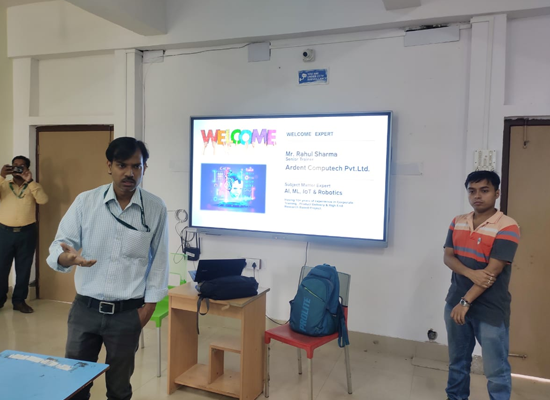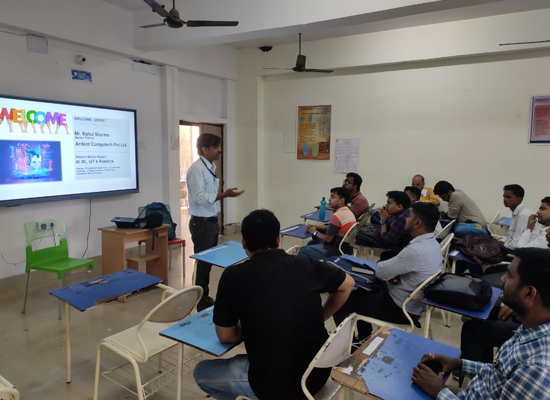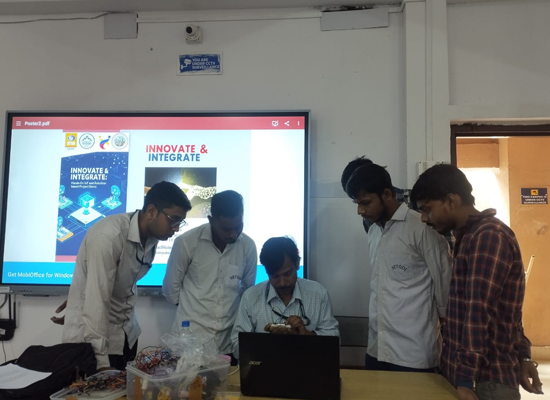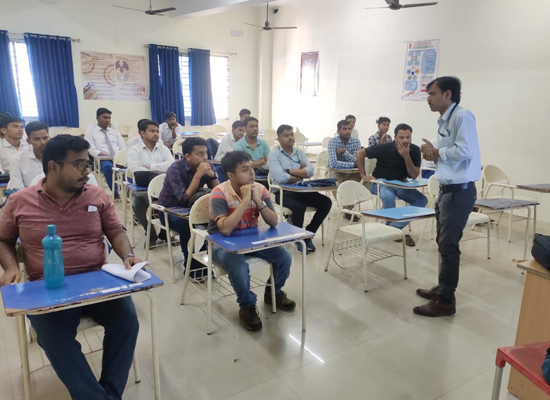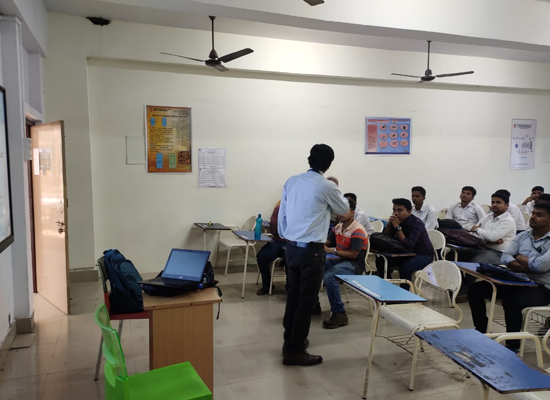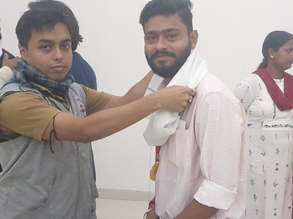Introduction to the Undergraduate Programme
The Electrical Engineering (EE) is one of the most vital Programs of SETGOI. The vision of the EE Program is to create talented and socially responsible engineers. The mission of this department is to impart high-quality education, superior training and advanced research exposure to groom its students for present job market. To achieve this, EE program undergoes many additional departmental level programs like case studies, innovative mini-projects, covering subject gaps, student’s seminars, group discussions and Technical quizzes. The seminars /webinars are organized where students can discuss with an industrial or research experts about the practical implementation and current issues of their subject topics. The major subjects of EE program covers ever challenging needs of technical excellence in all areas of electrical engineering such as Electric Circuits, Control Systems, Instrumentation, Machine Drives, Machine Design, Power Electronics, Power & Energy Systems, Artificial Intelligence and Machine Learning. In this program students also enjoy the flavour of electronics and computer science as an application area of electrical engineering. After completion the student can shift into any sub disciplinary area like Micro Electrical Engineering, Power Engineering, Instrumentation Engineering, Telecommunication Engineering and Electrical Design Engineering.
Who is the Programme for?
The programme is designed for those who are interested to make a career in-
| Major Career Opportunities | Higher Education Opportunities | Alternative Career Options |
|---|---|---|
|
|
|
Curriculum Structure
| Sl No. | Category | Breakup of Credits | Credit Distribution % |
|---|---|---|---|
| 1. | Humanities & Social Sciences + Management Courses | 12 | 7.5 |
| 2. | Basic Science Courses | 25 | 15.625 |
| 3. | Engineering Science Courses | 23 | 14.375 |
| 4. | Professional Core Courses | 59 | 36.875 |
| 5. | Project / Internship | 11 | 6.875 |
| 6. | Professional Elective Courses | 15 | 9.375 |
| 7. | Open Elective Courses | 15 | 9.375 |
| 8. | Mandatory Courses | 0 | 0 |
| Total Credits | 160 | 100 | |
Curriculum Details
Laboratories
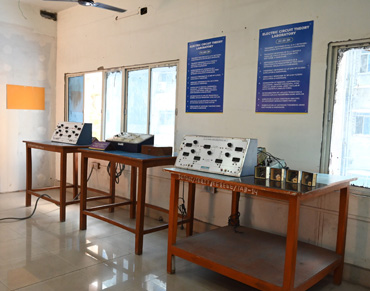
Circuit Theory Laboratory
The experiments in this lab link the circuit theory course to motivate the students for learning theory concepts through practical activity....

Circuit Theory Laboratory
The experiments in this lab link the circuit theory course to motivate the students for learning theory concepts through practical activity. Thus understanding the circuit functioning related to AC and DC circuit parameters, circuit components and theoretical laws are the main objectives of the Circuit theory lab.
LIST OF SOFTWARE
- MATLAB 13b
- PSPICE Student 9.1
- PSIM 9.3
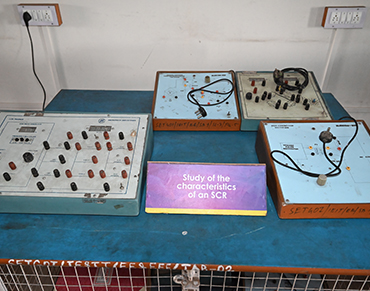
Measurement Laboratory
In this lab students get experience on various electrical measurements and testing.Students are can perform experiments.....

Measurement Laboratory
In this lab students get experience on various electrical measurements and testing. Students are can perform experiments on various working principles of measuring bridges and instruments. Experiments cover illustration of the principles of electrical & electronic measuring instruments and their limitations. They can perform error analysis with the help of standard instruments.
LIST OF SOFTWARE
- MATLAB 13b
- PSPICE Student 9.1
- PSIM 9.3
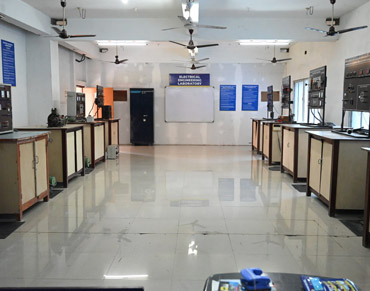
Electrical Machine Laboratory
The Electrical Machine Laboratory is an important Laboratory for Electrical Engineering students.This Laboratory is equipped with different AC and DC Electrical Machines, Transformers ...

Electrical Machine Laboratory
The Electrical Machine Laboratory is
an important Laboratory for Electrical Engineering students. This Laboratory is
equipped with different AC and DC Electrical Machines, Transformers and Electrical &
Electronics measuring equipments. This Laboratory enables undergraduate students to
understand the modelling and working of conventional and special Electrical Machines
easily. Also, the Laboratory is involved with various research activities and project
works.
LIST OF SOFTWARE
- MATLAB 13b
- PSPICE Student 9.1
- PSIM 9.3
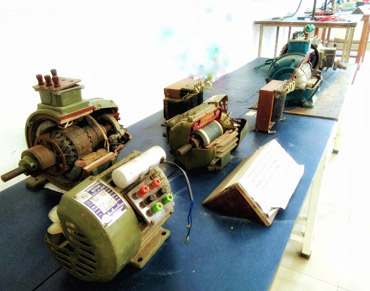
Basic Engineering Laboratory
In the introductory electrical engineering laboratory, students engage in hands-on exploration of fundamental concepts in electrical circuits....

Electrical Machine Design Laboratory
The Machine Design Laboratory contributes to educate the undergraduate student in the field of Electrical Design of a Machine. The mission of this lab is to understand the design concepts of components of electrical machine. The machine design includes learning design methodology and computer-aided design software systems which help electrical machine companies to rapidly develop high quality new products.
LIST OF SOFTWARE
- MATLAB 13b
- PSPICE Student 9.1
- PSIM 9.3

Power System Laboratory
In Power Systems Lab students becomes familiar with electrically-operated control equipments and protective devices of power system....
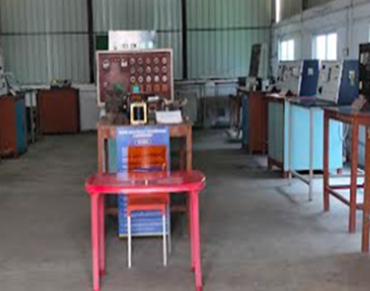
Power System Laboratory
In Power Systems Lab students becomes familiar with electrically-operated control equipments and protective devices of power system. Here students can get the overall view of generation transmission distribution sections of power system. Students can understand the locations and applications of electric generators, transformers and electric motors. Students get training on computer simulation for power flow, dynamic characteristics and stability studies of power system.
LIST OF SOFTWARE
- MATLAB 13b
- PSPICE Student 9.1
- PSIM 9.3

Power Electronics Laboratory
Power Electronics laboratory is used by UG students to follow the course Power Electronics Converters more deeply. This lab cons.....

Power Electronics Laboratory
Power Electronics laboratory is used by UG students to follow the course Power Electronics Converters more deeply. This lab consists of oscilloscopes, function generators, multimeters, soldering arrangements, LCR meters and power electronic components (viz. diac, triac, thyristors and UJTs) to carry out experiments. This laboratory is to impart practical knowledge of power electronic components and their applications.
LIST OF SOFTWARE
- MATLAB 13b
- PSPICE Student 9.1
- PSIM 9.3

Control System Laboratory
In Control System lab students acquainted with design of control circuit and different control parameters. Students understand the ......

Control System Laboratory
In Control System lab students acquainted with design of control circuit and different control parameters. Students understand the operation of various control strategies through computer simulation. The control signals variations and system stability with the variation of control parameter helps the students to understand the basic concepts of control system.
LIST OF SOFTWARE
- MATLAB 13b
- PSPICE Student 9.1
- PSIM 9.3

Electric Drives Laboratory
The Electric Drives Laboratory is a learning/research laboratory for Electric Drives and Renewable Energy.his laboratory is developed to....

Electric Drives Laboratory
The Electric Drives Laboratory is a learning/research laboratory for Electric Drives and Renewable Energy. This laboratory is developed to deliver hands-on experiments and projects in electric machines, power electronics, electric drives, circuits, power system and renewable energy. The students become proficient in the use of industry-standard tools for electric drives simulation.
LIST OF SOFTWARE
- MATLAB 13b
- PSPICE Student 9.1
- PSIM 9.3
Career Guidance & Mentoring
- Faculty Mentor monitors the personal and professional development of individual student mentee.
- Guides curricular, co-curricular and extra-curricular activities.
- Mentor establishes a personal relationship and addresses the various issues of the student.
DEPARTMENT VISION:
To envisage developing into and sustaining as a center of excellence by pioneering good quality education and research while producing competent and socially motivated Electrical Engineers
DEPARTMENT MISSION:
- DM1: Have a learning environment and infrastructure that provide quality education, training, and research.
- DM2: To bring the learners on par with the most recent scientific and technological advancements and make them industry ready.
- DM3: To foster employability, entrepreneurship, leadership capabilities with ethics, and a research mindset
PROGRAM EDUCATIONAL OBJECTIVES (PEO):
- PEO 1: Contribute to the industry as a professional engineer providing solutions for practical problems and develop new techniques.
- PEO 2: Become entrepreneur and establish industry with leadership and professionalism involving team work and ethical practices.
- PEO 3: Pursue higher education and contribute in advanced research and development providing solutions to the emerging needs of the society.
PROGRAM SPECIFIC OUTCOMES (PSO):
Students of Electrical Engineering will be able to
- 1: Implement technical knowledge and skill to analyze electrical machines, power electronics components, and electrical system applications
- 2: Explore the design of power system networks, the concept of renewable sources, and basics of automation
PROGRAM OUTCOMES (PO):
| PO1 | Engineering Knowledge: Apply the knowledge of mathematics, science, engineering fundamentals, and an engineering specialization to the solution of complex engineering problems. |
|---|---|
| PO2 | Problem Analysis: Identify, formulate, review research literature, and analyse complex engineering problems reaching substantiated conclusions using first principles of mathematics, natural sciences and engineering sciences. |
| PO3 | Design/Development of Solutions: Design solutions for complex engineering problems and design system components or processes that meet the specified needs with appropriate consideration for the public health and safety, and the cultural, societal, and environmental considerations. |
| PO4 | Conduct Investigations of Complex Problems: Use research-based knowledge and research methods including design of experiments, analysis and interpretation of data, and synthesis of the information to provide valid conclusions for complex problems |
| PO5 | Modern Tool Usage: Create, select, and apply appropriate techniques, resources, and modern engineering and IT tools including prediction and modelling to complex engineering activities with an understanding of the limitations. |
| PO6 | The Engineer and Society: Apply reasoning informed by the contextual knowledge to assess societal, health, safety, legal and cultural issues and the consequent responsibilities relevant to the professional engineering practice. |
| PO7 | Environment and Sustainability: Understand the impact of the professional engineering solutions in societal and environmental contexts, and demonstrate the knowledge of, and need for sustainable development. |
| PO8 | Ethics: Apply ethical principles and commit to professional ethics and responsibilities and norms of the engineering practice. |
| PO9 | Individual and Team Work: Function effectively as an individual, and as a member or leader in diverse teams, and in multidisciplinary settings. |
| PO10 | Communication: Communicate effectively on complex engineering activities with the engineering community and with society at large, such as, being able to comprehend and write effective reports and design documentation, make effective presentations, and give and receive clear instructions. |
| PO11 | Project Management and Finance: Demonstrate knowledge and understanding of the engineering and management principles and apply these to one’s own work, as a member and leader in a team, to manage projects and in multidisciplinary environments. |
| PO12 | Life-long Learning: Recognize the need for, and have the preparation and ability to engage in independent and lifelong learning in the broadest context of technological change. |



